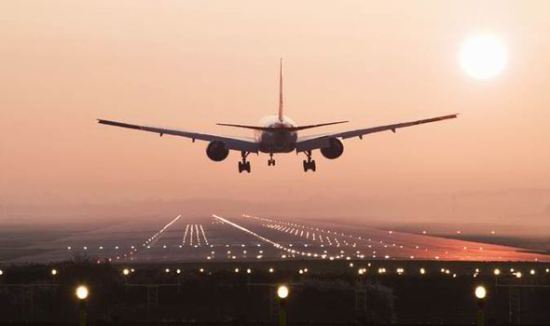
–
This article was first published at Conservatives for Liberty
Build the third runway at Heathrow airport. And a fourth. Build new runways at London’s Gatwick and Stansted airports too. And then build a helipad directly on top of the homes and gardens of all the selfish, hand-wringing, growth-averse NIMBY naysayers who think that their decision to live by an airport gives them veto rights over Britain’s economic future
Chicago’s O’Hare international airport has seven runways. Count ’em. Seven. Five of these runways run east-west and the other two run diagonally. So long as your aircraft possesses an engine and wheels, there is almost certainly a runway at O’Hare suitable for landing without the need to circle in a never-ending holding pattern before eventually lining up for approach and touching down an hour after actually arriving above the city.
You can fly in and out of Chicago quickly, efficiently and cheaply because generations of local political leaders – for all their many other faults – have understood that aviation provides a huge boost to the economy, and that a city which makes access and connection quick and convenient for all types of traveller will surely reap the economic rewards.
Nine hours away in London, this common-sense attitude is sorely lacking. Despite the fact that no new full-length runway has been constructed in London or the south-east of England since the 1940s – when we were still digging ourselves out of the rubble of the Blitz – Britain is wasting time, energy and precious economic opportunities debating whether or not to increase airport capacity at any one of several implausible choices in south-eastern England beside the obvious option of committing to London’s Heathrow Airport, the largest and most popular.
Anyone thinking that the release of the Airports Commission report by Sir Howard Davies (summary: we should probably expand Heathrow, but Gatwick will do in a pinch) would bring this debate to a timely end were deluding themselves. David Cameron’s shrewd political radar is matched only by his lack of political courage – the Tories are terrified of angering neighbouring voters by giving the green light for more noise pollution and traffic congestion around Heathrow.
Worse still, although the Tories are hardly seen as a party of tree-hugging eco warriors their likely candidate to replace Boris “Island” Johnson as Mayor of London, Zac Goldsmith, is also dead set against the idea of expanding Heathrow despite the overwhelming logic behind committing to the major hub airport.
The never-ending question of whether or not to do the obvious and expand Heathrow airport is typical of Britain’s ridiculous approach to important decisions about critical national infrastructure. First we deny the existence of a problem or need. Then we delude ourselves that we have plenty of time to consider the issue from all angles, while better governed countries leapfrog us left, right and centre. Then we establish a time-wasting commission which seeks – in that peculiarly British way – to avoid angering anyone, while actually enraging everyone with its equivocation. And finally, twenty years later, we come to a tortuous decision – at which point anything we reluctantly build is woefully inadequate to current demand.
Not content with fighting the expansion of Heathrow airport tooth and nail, others are opening a new front in the war on aviation with a sanctimonious new attack on frequent fliers, who many left-wingers see not as vital contributors to global business and tourism but rather as parasitic city-hoppers guilty of overconsumption and leaving deadly trails of CO2 in their wake.
Looking wistfully back at the time when an Icelandic volcano eruption grounded flights between Europe and America, the Guardian opines:
The loss of the global economy’s airborne arteries could have been a death knell for business. But, the world didn’t end and people adapted astonishingly quickly in ways that had other environmental benefits.
There was an upward spike in the use of video-conferencing facilities saving business travellers time, money and fatigue […]
What’s more, stranded people turned to each other for help. The Swedish carpool movement spread its horizons, setting up a new Facebook group called Carpool Europe to share cars and rides. Twitter came into its own with hashtags like #putmeup and #getmehome.
You know when else the British people came together to make the best of a bad situation and relied on the kindness of strangers to get by? The Blitz. But no-one is proposing that we invite the Luftwaffe back for a second crack at carpet-bombing our major cities, because although disruptive and traumatic events do force us to come up with inventive ways to survive and keep the wheels turning, it would usually be far better if the negative situation occurred at all.
This is especially true of self-inflicted economic wounds like the proposed frequent flyer tax or the stubborn failure to expand and upgrade key national infrastructure out of genuine (or cynical) concern for the environment. If we continue to starve London of connections to the expanding markets of countries like China, the world will not end. But we will be overtaken by other, better governed European countries and we will all be immeasurably poorer in the long term.
There are times when we absolutely should put the conservation of our planet and natural environment at the forefront of government decision making and planning. But there are also times when our commitment to human progress and building a more prosperous society full of material abundance should be our single-minded goal. The tedious, seemingly never-ending debate about whether or not to build one solitary new runway in Britain falls firmly into the second category.
When formulating government policy or making critical decisions about our national infrastructure, we should subject our thought processes to one key test: does the proposal look to the past or the future? And if the proposal looks to the past – making use of outdated technology, serving a saturated market or simply mollifying people who are scared of progress and change – we should kill it in the crib.
For example, we should not be rushing to build new coal-fired power stations to meet our future energy needs, no matter what spurious claims ‘clean coal’ may make for itself. Rather, we should invest heavily in nuclear power and renewables (home grown where possible) to ensure Britain’s long-term energy independence and national security interests.
Local interests and feelings are important, but there are times when we must think and act as one country, with important national needs and challenges to be faced together. And yes, sometimes this will mean bulldozing over the objections of those blinkered, parsimonious campaigners who seem to find an objection to just about any form of pleasure or economic activity.
Air travel is great. It takes rich tourists from wealthy countries and brings them to poorer countries where they boost the local economy with their money. It keeps the wheels of business turning, from the CEO flying from New York to London for a meeting, the office worker commuting to Berlin every week for a project, to doctors and scientists gathering for international conferences.
Air travel bridges the distance between our towns and cities and helps knit the planet together through a web of far-flung family members, friendships and business relationships. And in doing so, the aviation industry helps to foster trust and understanding, bridging cultural divides and doing more to affirm our common humanity than any third-sector institution or political movement.
And yet we seem intent on attacking aviation, thwarting its growth and choking the life out of the industry with punishing airport taxes and insurmountable barriers to expansion. And for what? So that human beings can creep meekly across the surface of the planet, apologising for our very existence and ostentatiously offsetting the carbon dioxide we emit whenever we open our mouths?
When it comes to coal, by all means let Britain keep it in the ground and in the twentieth century, where it belongs. Regulate the life out of the fracking industry too, if you must, so long as you are willing to explain to the unemployed man why your environmentalist convictions should trump his right to work.
But for heaven’s sake, let’s not continue to suppress Britain’s aviation industry – which is so important and contributes so much – just to burnish our green credentials.

–
This article was first published at Conservatives for Liberty
–
Agree with this article? Violently disagree? Scroll down to leave a comment.
Follow Semi-Partisan Politics on Twitter, Facebook and Medium.

Or just don’t build the damn runway; instead, end our ridiculous obsession with air travel or at least hub airports.
Consider about a year ago when I went along with a relative to visit Florida. Our journey consisted of going to Newcastle Airport (we live on Teesside), catching a connecting flight to Heathrow, travelling to some hub in America (Charlotte on the way out, Philadelphia on the way back) and then to Ft. Myers in Florida. Given that it’s a 45min. drive at least to get from Stockton-on-Tees to Newcastle, and given the holdover times plus all the security rigmarole, check ins &c., we might as well have gone to Darlington and got the train down. So, I thought, domestic flights within the UK seem pretty counter-productive, one less need for a hub airport. Or, I thought, why could we not fly to the States direct from Newcastle, or from our own neglected local airport (which the powers that be have decided to rename “Durham Tees Valley” even though I still think of it by the old name, simply “Teesside”) to Heathrow at least? What of all the other neglected regional airports that have been closed or are under threat of closure? Is there some logisitical reaosn why we need “hub” airports?
Now, of course, a third runway could reduce holdover times significantly. But what has to go to make way for this thrid runway? (I understood at one point, two whole villages, though since I can’t find mention of this anywhere). Do we even have the space like they do in Chicago? We are much more densely packed than Stateside.
LikeLike